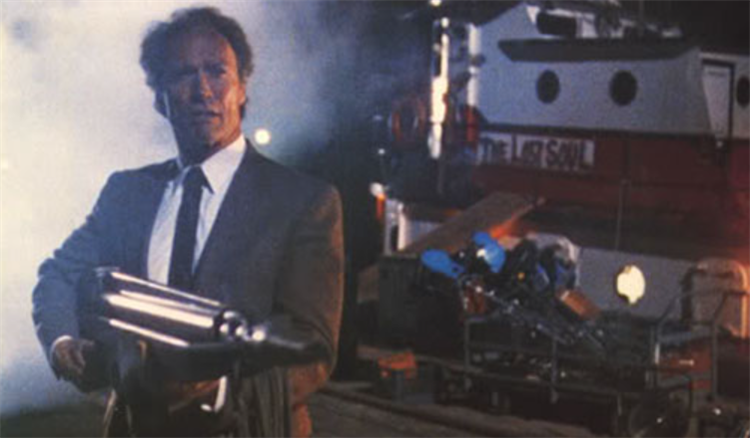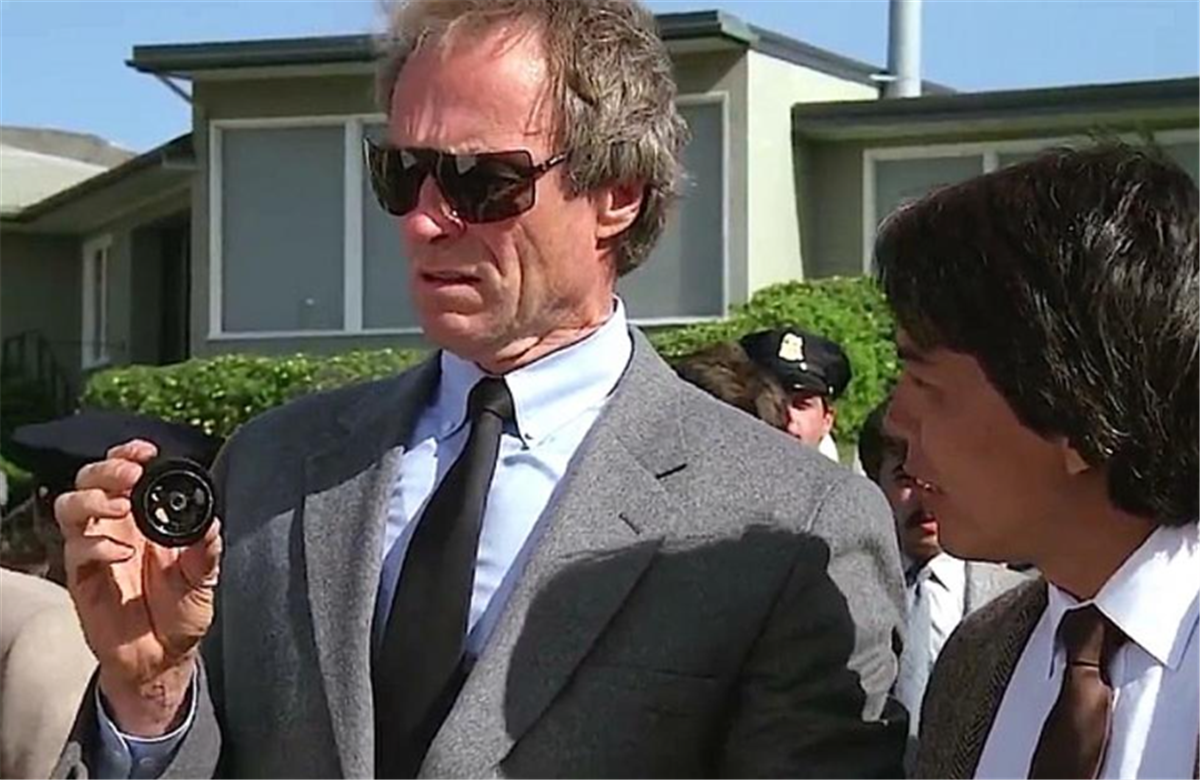Like many action film sagas, the Dirty Harry series got a little bit sillier with each installment. While both Dirty Harry and its first sequel Magnum Force felt like fairly realistic crime thrillers, each subsequent sequel began to focus more on the amount of snarky one-liners that Clint Eastwood could deliver. This doesn’t mean that the later Dirty Harry sequels aren’t entertaining; for the most part, a lot of the “unrealistic” elements aren’t distracting enough to take the viewer out of the story. The one exception may be 1988’s The Dead Pool. The final film in the series contains a very strange plot hole that includes both Jim Carrey and Guns ‘n Roses.
Jim Carrey Performs a Song by Guns ‘N Roses in ‘The Dead Pool’

The Dead Pool picks up with an older version of Inspector Harry Callahan (Eastwood), who is offering his testimony in order to convict a mobster. While each Dirty Harry sequel seemed to hint that the infamous police inspector may be retiring, The Dead Pool confirms that even at his advancing age, Harry is still in active duty. Harry is called in to investigate the death of the rock singer Jimmy Squares (Jim Carrey), whose body was discovered after he filmed a music video with the music video director Peter Swan (Liam Neeson). Although the official story seems to indicate that Squares’ death was due to an overdose, Harry suspects that there may have been something more sinister at play.
Although Carrey is only in The Dead Pool for a brief amount of time because he is killed off so quickly, director Buddy Van Horn does attempt to make him feel like a sympathetic character. It was important for the story to explore what Squares’ life and artistry looked like before he was killed; this makes the murder mystery more compelling and puts more pressure on Harry to solve the crime. In order to show what sort of artist Squares was, footage from the music video that he was shooting with Swan is included. During this sequence, Carrey sings along to the Guns ‘n Roses classic “Welcome to the Jungle.”
The implication during this moment is that Squares himself is responsible for writing the song. This may strike any Guns ‘n Roses fan as a little odd, considering that “Welcome to the Jungle” is one of their most famous tracks. What makes this even more confusing is that the actual members of Guns ‘n Roses appear later on in the film during a scene showing Squares’ funeral. So, in the context of The Dead Pool, are Guns ‘n Roses just unrelated singers that have nothing to do with Squares? The fact that the artistry behind “Welcome to the Jungle” is even a point of discussion for a Dirty Harry sequel is itself a question worth asking. It’s clear that the series no longer claims to operate with any amount of realism, even though the first Dirty Harry was loosely based on a true story.
Despite this strange plot contrivance, The Dead Pool is still a very entertaining Dirty Harry film that allowed Clint Eastwood to exit the character on a graceful note. It’s rare to see a film franchise conclude on its own terms without a major box office bomb or critical failure; The Dead Pool isn’t either. In fact, the film even manages to add a sense of self-awareness to the series by featuring a serial killer who goes after Harry himself. Although Eastwood nearly reprised the role a decade later, The Dead Pool stands as a fitting conclusion to one of his most iconic character parts.
‘The Dead Pool’ Was Jim Carrey’s First Dramatic Role

The Dead Pool was released prior to Jim Carrey’s breakthrough as a comedic superstar, so his performance wasn’t as distracting as it would have been had he already appeared in Dumb & Dumber or Ace Ventura: Pet Detective. While late 1990s audiences may have been surprised to see Carrey in a dramatic role, The Dead Pool ended up being the first of Carrey’s more serious ventures. Even though his skills as a physical comedian are nearly unparalleled, Carrey has proven in multiple instances that he can also take himself seriously.
In the late 1990s, Man on the Moon and The Truman Show proved that Carrey could retain his sense of humor within the context of a more serious movie. Man on the Moon is about the comedian Andy Kaufman, so Carrey’s performance is still funny, but he had to ensure that he didn’t turn into a complete caricature. Similarly, The Truman Show was a film that weaponized Carrey’s charisma in order to show how damaging being a television star could be. These films, along with Eternal Sunshine of the Spotless Mind, proved that Carrey was more than the goofy jokester that some of his critics had dismissed him as.
